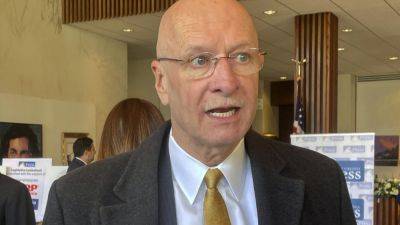West Virginia and North Carolina’s transgender care coverage policies discriminate, judges rule
CHARLESTON, W.Va. — West Virginia and North Carolina’s refusal to cover certain health care for transgender people with government-sponsored insurance is discriminatory, a federal appeals court ruled Monday in a case likely headed to the U.S. Supreme Court.
The Richmond-based 4th U.S. Circuit Court of Appeals ruled 8-6 in the case involving coverage of gender-affirming care by North Carolina’s state employee health plan and the coverage of gender-affirming surgery by West Virginia Medicaid.
After the ruling, West Virginia plaintiff Shauntae Anderson, a Black transgender woman and West Virginia Medicaid participant, called her state’s refusal to cover her care “deeply dehumanizing.”
“I am so relieved that this court ruling puts us one step closer to the day when Medicaid can no longer deny transgender West Virginians access to the essential healthcare that our doctors say is necessary for us,” Anderson said in a statement.
West Virginia Attorney General Patrick Morrisey immediately released a statement announcing his office’s intention to appeal.
“Decisions like this one, from a court dominated by Obama- and Biden-appointees, cannot stand: we’ll take this up to the Supreme Court and win,” Morrisey said.
During oral arguments in September, at least two judges said it’s likely the case will eventually reach the U.S. Supreme Court. Both states appealed separate lower court rulings that found the denial of gender-affirming care to be discriminatory and unconstitutional. Two panels of three Fourth Circuit judges heard arguments in both cases last year before deciding to intertwine the two cases and see them presented before the full court of 15.
In June 2022, a North Carolina trial court demanded the state plan pay for







